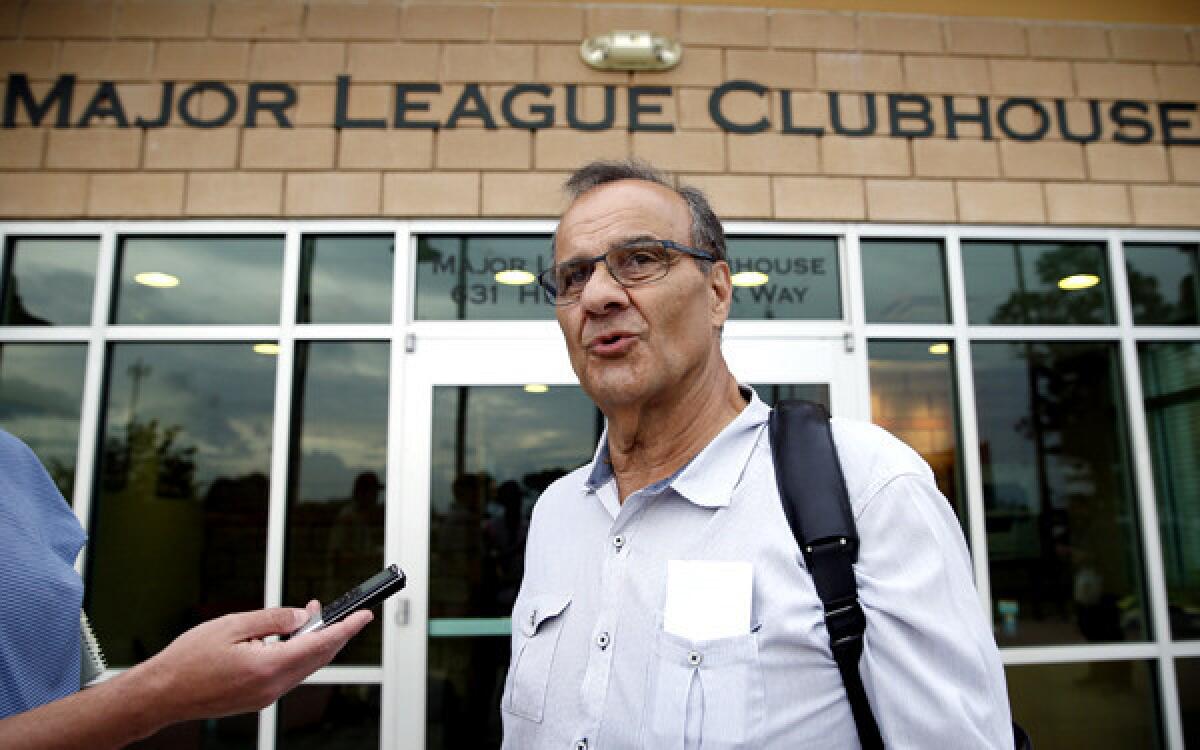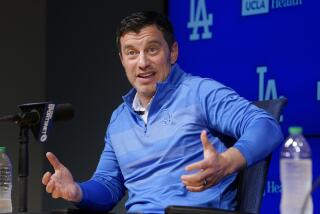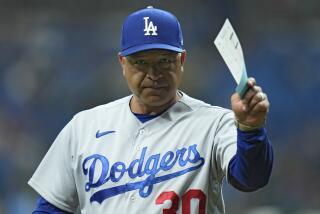Joe Torre rejects calls for on-site replay officials

Joe Torre, executive vice president of baseball operations for Major League Baseball, talks about the use of replay earlier this year.
In the seventh inning of the Dodgers’ home opener Friday, Hanley Ramirez was called safe as he tried to steal second base. After a replay review, Ramirez was called out.
Here is what happened in the interim: San Francisco Giants Manager Bruce Bochy sauntered out of the visiting dugout, shuffling toward second base. Managers no longer rush onto the field to challenge an umpire, because they need to buy some time for their video staff to determine whether a play should be challenged.
Bochy and second base umpire Marty Foster chatted, rather amiably by all appearances, until Bochy got the signal to challenge the play. At that point, the umpires walked toward the Dodgers dugout as a technician brought out a pair of headphones. Ultimately, after review at baseball’s replay headquarters in New York, the call was overturned.
The introduction of the expanded replay has prompted observers to wonder whether Major League Baseball would be better served by eliminating the managerial challenge.
If the point is to get the call right -- rather than to impose a strategical dimension by forcing a manager to determine when to use his challenge -- then MLB could station a fifth umpire in a replay booth. The review of any questionable call would commence immediately, rather than wait for a staged slow-motion argument between a manager and an umpire.
Joe Torre, baseball’s point man for the replay expansion, said he does not believe an additional umpire in an on-site booth would improve the system or speed the process.
“If you’re talking about somebody in the booth, you have to have one guy looking at every play,” Torre said Friday at Dodger Stadium. “And it wouldn’t be any quicker. You’re still getting that information as quick as they do back in New York. In New York, you have other people in there, and you can get another set of eyes: ‘Is what I am seeing right?’
“The one thing about it: those ones that are easy to overturn, we can all make those decisions. There are some other ones that are not as easy, and when you start slowing it down … it becomes a little blurrier, It’s not that easy to say, I can make every single call. And I would hate to leave somebody up there by himself and happen to have somebody come down with the flu one day and not have anybody in the booth that particular day.”
More to Read
Are you a true-blue fan?
Get our Dodgers Dugout newsletter for insights, news and much more.
You may occasionally receive promotional content from the Los Angeles Times.







